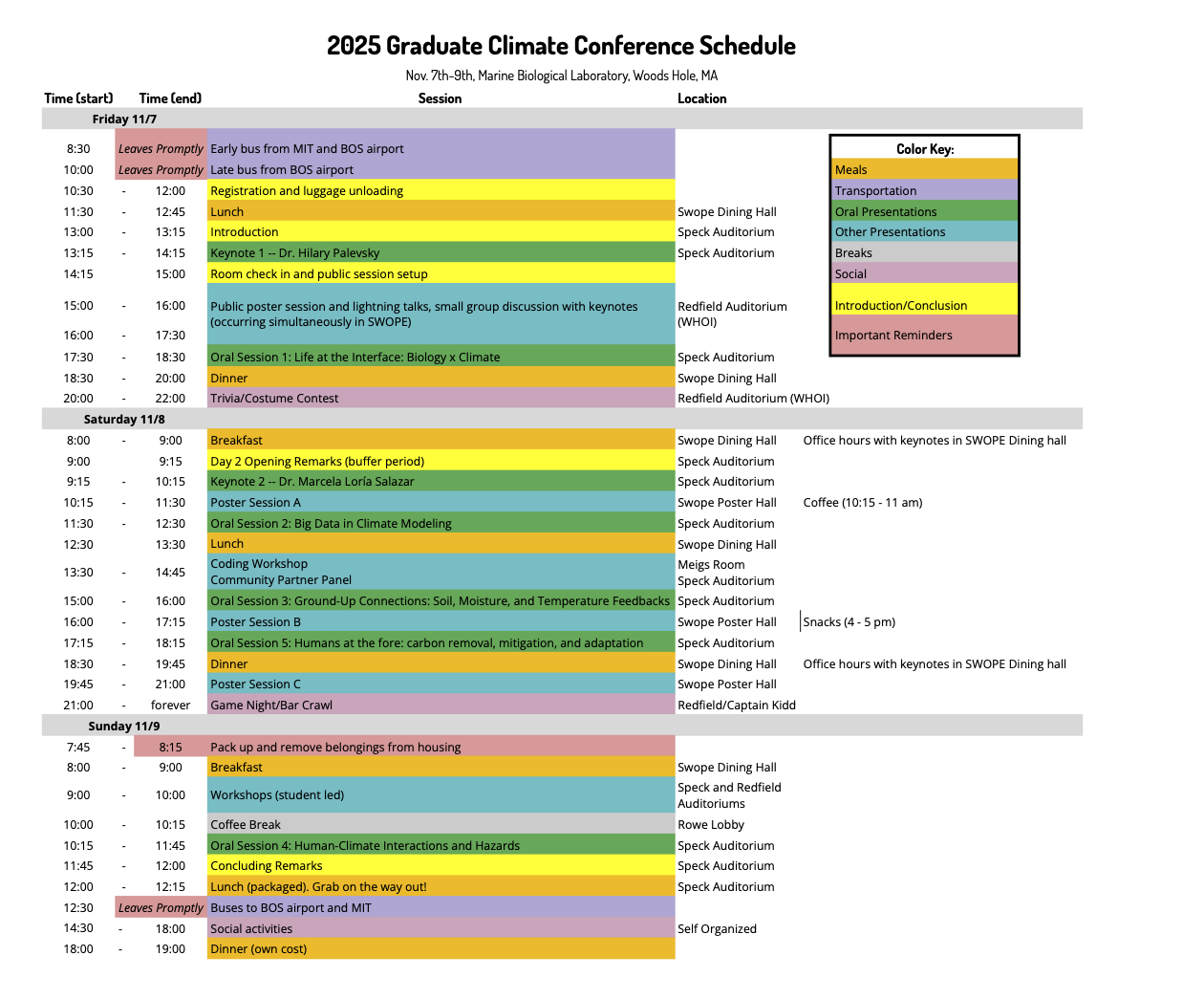Schedule
Please Note: The below schedule is the most up-to-date version. Please refer to this schedule for oral and poster session titles and labelling. Locations for each event have now been posted.

Last updated 8:39 am on Saturday, November 8th
Please Note: The below schedule is the most up-to-date version. Please refer to this schedule for oral and poster session titles and labelling. Locations for each event have now been posted.

Last updated 8:39 am on Saturday, November 8th